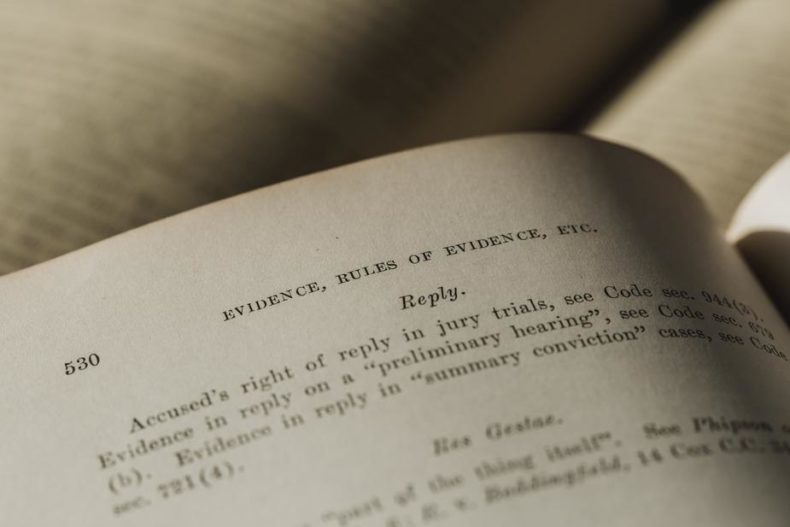Hearsay evidence is a term that often comes up in court during trials or preliminary inquiries, and it refers to any out-of-court, second-hand statement being presented for the truth of its content. It is important to understand the concept of hearsay and its implications in court proceedings.
Examples of Hearsay Evidence
Hearsay can take various forms, and here are a few examples to illustrate the concept:
- Jessica runs out of an apartment building and tells a witness, “Richard shot Nick!” The witness later testifies in court about Jessica’s out-of-court statement. This would be considered hearsay evidence, as the witness does not have firsthand knowledge of whether Richard actually shot Nick, and Jessica is not present in court to be questioned about her statement.
- A written statement, such as a letter or an email, that is being used to prove the truth of its contents, but the author is not present in court to testify about it. This would also be considered hearsay evidence, as the author cannot be cross-examined to assess the reliability of the statement.
Exceptions to the Rule Against Hearsay Evidence
In general, hearsay evidence is not admissible in court, unless a statutory or common law exception applies. Some common exceptions to the hearsay rule include:
- Admissions by an accused person: If a defendant makes a statement that is against their own interest, such as confessing to a crime, it may be admissible as an exception to hearsay.
- Dying declarations: Statements made by a person who believes they are about to die, regarding the cause or circumstances of their impending death, may be admissible as an exception to hearsay.
- Statements made in a state of shock or surprise (Res Gestae): Statements made immediately after a startling event, such as a car accident or a robbery, may be admissible as an exception to hearsay.
- Statutory exceptions: Some jurisdictions have specific statutes that allow certain hearsay evidence to be admitted in court.
Challenging Hearsay Evidence in Court
If hearsay evidence is admitted in court under an exception, the defense may challenge its credibility and reliability. Strategies for challenging hearsay evidence could include:
- Cross-examining witnesses who are presenting hearsay evidence: This could involve questioning the witnesses about their knowledge of the declarant’s reliability, their ability to accurately recall the statement, and any potential biases or motivations they may have.
- Undermining the credibility of the declarant: This could involve presenting evidence that contradicts or undermines the hearsay statement, such as evidence of the declarant’s history of lying or unreliability.
- Presenting other admissible evidence: This could involve presenting other evidence that supports the defense’s version of events and contradicts the hearsay statement, such as eyewitness testimony or physical evidence.
Understanding the Consequences of Hearsay Evidence
The exclusion of hearsay evidence in court is based on concerns over its credibility and reliability. Allowing hearsay evidence without proper scrutiny through cross-examination could result in wrongful convictions or acquittals based on unreliable information. It is essential to have a lawyer who understands the law of evidence and can effectively challenge hearsay evidence if you or a loved one has been charged with a crime.
Conclusion
Hearsay evidence is a complex and often controversial topic in court proceedings. While there are exceptions to the hearsay rule, it is important to understand the limitations and potential risks of relying on hearsay evidence in court. Challenging the credibility and reliability of hearsay evidence, presenting other admissible evidence, and understanding the nuances of the hearsay rule are crucial aspects of a strong legal defense. If you are or a loved one have been charged with a crime, it is important to have a lawyer who understands the law of evidence. A skilled criminal defense lawyer can challenge questionable evidence, such as hearsay statements, and help you prepare a strong defense. Please do not hesitate to contact me for a free initial consultation. I will be be glad to assist you.

